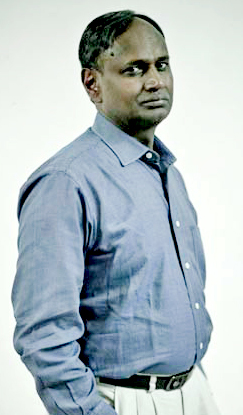 THERE WAS a flashpoint in 1997 when sections of Arun Shourie’s Worshipping False Gods called Dr Bhimrao Ambedkar a British stooge. Instead of unleashing violent mobs on the street, the Dalit community reacted in a surprising way. The offending book was countered by a few 100 written works big and small. Dalit leader Udit Raj, 54, tells Karuna John how a volatile controversy was successfully doused by debate.
THERE WAS a flashpoint in 1997 when sections of Arun Shourie’s Worshipping False Gods called Dr Bhimrao Ambedkar a British stooge. Instead of unleashing violent mobs on the street, the Dalit community reacted in a surprising way. The offending book was countered by a few 100 written works big and small. Dalit leader Udit Raj, 54, tells Karuna John how a volatile controversy was successfully doused by debate.
EDITED EXCERPTS FROM AN INTERVIEW
Why are we always easily offended?
There are a number of factors. We aren’t mature enough to appreciate different thoughts and ideas. Second, there is too much competition for power, name and respect. Sometimes, by opposing even a right cause, a person gets an identity. The media too gives importance to anything that seems controversial or spicy. The Dalit community is sensitive too as there is an identity crisis. For instance, once someone said Dr Ambedkar loved dogs. Even that was opposed by Dalit groups.
Dalits too want caste names to be banned…
If a Brahmin is not offended by being called a Brahmin, then why should a Khatik or Chamar be offended if they are addressed so? There is intolerance among Dalits. Some feel offended by the surnames they are given. They have found alternatives to those caste names. Call them Dhobi and they are offended. Historically, these terms connoted that they are lower castes. These words are banned, only if they are used to humiliate or lower the position of a person. Not so if these are used to describe someone, say in a play or poetry.
Does banning the use of a word or name change anything?
No. The scavenging community prefers to be known as the Balmiki community now but their position in society remains the same. Call them Bhangi and they’ll retaliate, call them Balmiki and they won’t mind. It reminds them of the roots that they want to forget.
There are self-appointed leaders who claim offence on behalf of the entire community.
It’s not necessary that only an elected person has a right to react. Mayawati rose to great heights when she opposed the word Harijan. She said, “Agar hum Harijanki aulad hain, to Gandhi kya shaitan ki aulad the (if we are the children of Harijans, was Gandhi the devil’s child?)” Till the 1980s, Dalits were happy to be called Harijan but later on the same word became derogatory. It was a word that stood for illegitimate children of Hindu priests living in temples.
Who had called for the ban on community names?
The communities themselves. The Balmikis did not want to be called Bhangis, same with Chamars, Pasi, Dhobi and Khatiks. We have not called for a ban. Tulsidas’Ramayan puts Dalit women in the same category as animals and idiots. People don’t like it but we can’t say that it’s not tolerated.
No one demanded a ‘ban’?
The issue has been raised. I think Muslims should answer Rushdie in the same way. They should write [books explaining] how he is wrong. There have been half-a-dozen movies on Jesus Christ showing him in different ways, including his sexuality, but Christians have not asked for a ban. They have written back saying it’s wrong. Even if Rushdie has written a wrong thing, the intellectual Muslims should write back and disprove him. Then Islam will be respected even more.
The Dalit community has had to face defamatory writing too?
Yes, Arun Shourie wrote a book, Worshipping False Gods, in which he said Dr Ambedkar was a stooge of the British, a sycophant who was also corrupt. We fought Shourie back in the same style and wrote that this is wrong. Muslims should react in the same way.
Was that seen as a sign of weakness?
No. We replied intellectually. Writings should be replied by writing. Shourie lost respect and was boycotted. I told the BJP leaders that if Dalits went away from the party, it was largely because of his book. Yet we did not ask for a ban. It was an occasion to react for us. It was a great contribution to the Dalit community as more and more Dalits began reading about Ambedkar’s life. Similarly, the Muslims should say that it is Rushdie who is the Satan. Banning results in curiosity, not just in Muslims but in other communities as well. If he was countered by intellectual writing then Rushdie would not have found a place anywhere in the world. They should demolish him intellectually, demolish his theory.





Comments
Add new comment